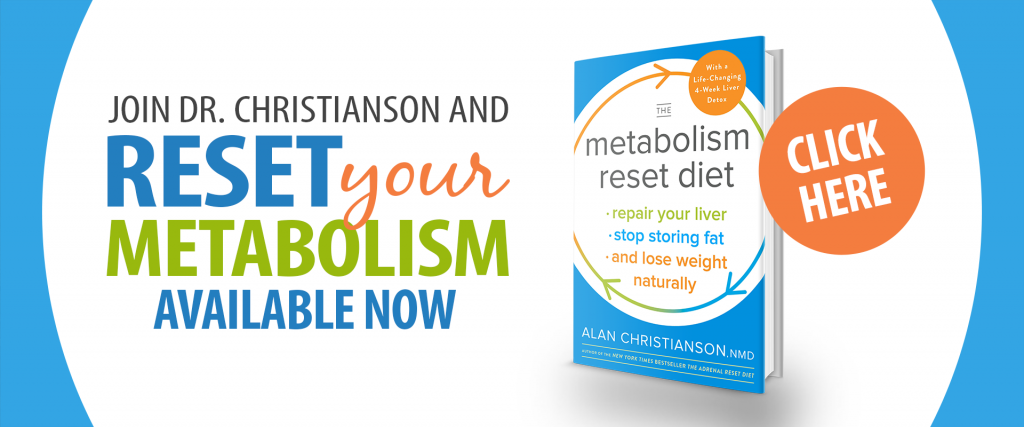This is a topic I think you are really going to want to know about. Fad diets, they can work, but in order to understand how they work, and how they present their own unique drawbacks, you are going to need to know the bigger picture. Here is everything you need to know about fad diets and your diet.
- Have any questions?
- 480-631-7837
- support@in-goodhealth.com

Update – How To Increase Cortisol In The Morning
October 22, 2018
Is Gluten Hurting Your Thyroid?
November 19, 2018
Update – How To Increase Cortisol In The Morning
October 22, 2018
Is Gluten Hurting Your Thyroid?
November 19, 2018
The Truth About Fad Diets
“I went paleo and lost and I reversed my Hashimoto’s disease.” “I went vegan and reversed my diabetes.” “I tried the ketogenic diet and finally started to lose weight.” These are all statements swirling around our current conversations around diets. While they do work, the big caveat here is “sometimes.”
How could it be that diets, which are completely different from one another, could yield such effective results? For example, the paleo diet (Read: Is the paleo diet really paleo) adheres to a strict “no-grains” policy. While vegans, on the flipside of the coin, enjoy a large number of grains (while reversing Hashimoto’s or autoimmune disease).
Meanwhile, the key to the vegan diet is no animal foods or animal byproducts. The paleo diet is built around the concept of eating more animal proteins. Which have allowed these folks to decrease problems dealing with blood sugar regulation.
Bottom Line: How do you make sense out of all this? Are fad diets the silver bullet you need to cut through all your health ailments? Or, are they merely a quick fix that becomes ineffective over time? Let’s dig into the science to make sense of diets.
A Big Picture Approach

One of the main takeaways that I want you to get from today’s article is that you can do the right thing. Or you can do something that did not work, and still get a good result in both cases.
Alternatively, you could do something that had 3-4 useful steps (that did help), and a couple steps that were not as important. Also a couple counterproductive ones, too. Even with these, you might still end up with a good outcome.
Bottom Line: There is doing something right, and then there is simply getting lucky. The truth is that most fad diets invoke both concepts. Doing a little bit right and getting a little bit lucky. Let me tell you more about them, and what really ties them all together.
Common Threads: Fad Diets
In most cases, when someone’s diet changes, they are engaging with some pretty common tenets (which you can find in most of these fad diets):
- Enjoying higher-quality food
- Consuming more vegetables
- Getting more fiber into their system
- Eating less sugar
- Food quantity reducing
- Food timing improving

Key Insight: Sometimes just the thought of dietary change on its own is enough to provoke change in the body. This can often cause big benefits all by itself.
The other huge element of fad diets is that you are starting to bring a lot more mindfulness to the table – literally and figuratively!
Interested in getting more mindful about your diet? Start with the nutrients…
When you change your diet, you really have to put more thought into the ingredients you buy, the food you prepare, and what you eat even when you go out to restaurants.
Bottom Line: These main tenets are some of what we see in many of these diets. They really help contribute to the positive effects that these diets can have on our health. They are powerful, they improve your health, and they can definitely change lives.
The Gluten-Free “Debate”
This whole idea reminds me of an exchange I recently had with a dear friend of mine. We were discussing whether or not she should embrace a gluten-free diet. There was a study in which people who had gone gluten-free had higher rates of cardiovascular death1.
The results of this study found that there were more people, on a gluten-free diet, that died of heart attacks than those who did not. From there, this friend of mine wanted to make the argument that going gluten-free allowed her to lose some weight (which she had gained back in the time since).
Key Insight: My main point that I wanted to get across was that you cannot do one change in isolation and expect to get long-term benefits until the end of time.
In terms of the higher rate of cardiovascular death, I have heard many people object to this study by saying that if someone was to go on a gluten-free diet, they may have supplemented what they lose with more processed foods (or had more gluten-free junk food).
That is possible, but this study happened to consider that same variable. They took into account overall dietary quality, amidst other factors, to compile the following list:
- Dietary quality
- Changes in weight
- Cholesterol changes
- Total fiber intake
- Glycemic load
- Physical activity level
- General health
When all of these things were factored in, the study still showed that cutting out gluten resulted in more overall cardiovascular death. The biggest factor therein was to what degree each participant decreased their intake of whole grains after going gluten-free.
Bottom Line: There were some studied who still made whole grains a part of their diet, and those people did not see the same rate of cardiovascular death as others (those who simply cut out gluten). A thought here is that, in many cases, people go grain-free altogether and this may well result in more cardiovascular death.
Why Fad Diets Do Not Work Long-Term

So, let us get back into the topic of fad diets. Earlier, I relayed some benefits that you might be able to see from doing a fad diet. Some of these benefits come from food quality and general mindfulness about what you are putting into your body.
Get the most from your body by putting the most into it, and start with your daily intake of fiber right now…

The truth, though, is that many of these fad diets do not last. Personally, I have plenty of firsthand knowledge of how these diets work, and how they do not work, having tried many of them myself (and falling into those same traps that I now want to help you navigate).
I have done them all, and I definitely get how in the first phase of just about any diet you are enjoying this “honeymoon lifestyle” of rediscovering food and trying new meals and bettering yourself. There is nothing wrong with taking steps to secure your health, as long as you are doing it in a correct and sustainable way.
The cracks begin to show when you really feel like, “this is it,” and “this is the truth.” These new rules are being followed, new principles absorbed and made part of your day-to-day life, and the system seems internally consistent. This is the phase where you really feel like you are doing so much better.
But then, as it always does, it drifts! These diets have a hard time sticking. After several weeks or several months, you can find yourself falling into the same traps like the following:
Workarounds
This is where you start working around some of the initial changes that you made to your diet, and this is especially apparent where you are really keyed in on exclusions. Say you are adhering to the paleo diet, hardcore, and you refuse to eat any:
- Grains
- Beans
- Dairy
If your whole diet becomes about what you are avoiding, your diet quality can begin to drift. This is when you start to lose that “mindfulness” that was so important in the beginning. Instead of focusing on what you are putting into your system, you are focused on leaving things out.
There are even what we call “cheats.” These can be low-fat, low-cholesterol, or paleo-friendly cheats that you can incorporate into your diet. Even though you are still abiding by this rubric that you have built for yourself, does not mean that just because it is paleo-friendly it is good for your diet. In fact, it can have very much the opposite effect.
Bottom Line: A snack is a snack, whether it is low-fat, low-carb, or paleo-friendly. When you supplement your diet with these, you are not doing your body any favors. Instead, you are allowing the quality of your diet to slip as you incorporate more of these workarounds into it.
Greater Food Quantity
Once you get the hang of your new food rules, what is not allowed and what works, you can really start indulging in what was once okay. After becoming what we call “familiar foods,” your food quantity level begins to ratchet up.
Bottom Line: This all goes back to a recent article that I had written on the importance of fuel and what it means for your diet (Read: How much fuel do you need). I would love for you to check that out to learn more about this concept, and what it could possibly mean for you.
Poorer Digestive Function
Humans are omnivores, which means that we can get by on a lot of different foods. The other consideration we do need to make though is that the more we narrow our diets, the more our gut apparatus retools itself to be restrictive.
This means that our digestive system learns only to perform well with these narrow food choices. The pitfall here is that we lose a lot of diversity that we need in our gut flora. We also get worse at making digestive acid and enzymes.
Bottom Line: This is something of a slippery slope for a lot of people on these fad diets, to where their diet becomes so restricted that there are fewer and fewer foods that their bodies can tolerate at all.
Nocebo Effect
This pitfall is something a bit more mental and emotional. The main idea is that once you are taught to believe that something is bad or harmful, you will look for ways to confirm that (what we also might call a “confirmation bias”).
How does this take effect? Well, you can simply start attributing symptoms to the wrong things. The problem is that these symptoms may be totally real and measurable, but we write them off as the source (which may well deny the root cause).
Key Insight: Studies have been shown that if you expect a food to cause gut inflammation, it can truly cause gut inflammation based entirely on your expectations.
Another thing that can happen is that we can get so fixated on the right way to eat, that we become fearful of food in general. This has been termed “orthorexia,” or “correct eating.” If you are not eating in those pre-defined “correct” terms, bad things can happen.
Bottom Line: That belief in the negative is incredibly powerful. In fact, it can have a really negative effect on how you view food, and how food affects you.
Free Yourself Of Fad Diets
What I want you to know, more than anything, is that you should feel free to free your mind from the constraints of fad diets. Even if something seems to be helpful or seems to be making sense, it may not be the best solution for your long-term health.
Your body’s needs may change over time. That is why only a few foundational principles, instead of strict limitations and allowances, are really strong in nutrition – and it all comes down to fuel.
Not too much fuel, and not too little, along with certain amounts of essential nutrients, with a large diversity of overall healthy foods in our lives. That really is the not-so-secret solution to a positive diet (which can spur a lot of a positive change on its own).

Access More Information Right Now
Interested in making additional positive changes in your life? Unlocking the secret to good health can be found in your thyroid, and taking the Thyroid Quiz (Click Here) is the key. Try it today, and see what you can do to have a better tomorrow.
1. https://www.bmj.com/content/357/bmj.j1892

P.S. Whenever you are ready, here is how I can help you now:
- Schedule a Thyroid Second Opinion with me, Dr. C, Click Here for Details
- Need help to choose supplements? Click ‘Help Me Decide Here'
- Get my top books Here
Dr. Alan Glen Christianson (Dr. C) is a Naturopathic Endocrinologist and the author of The NY Times bestselling Hormone Healing Cookbook, The Metabolism Reset Diet, and The Thyroid Reset Diet.
Dr. C’s gift for figuring out what works has helped hundreds of thousands reverse thyroid disease, heal their adrenals, and lose weight naturally. Learn more about the surprising story that started his quest.







